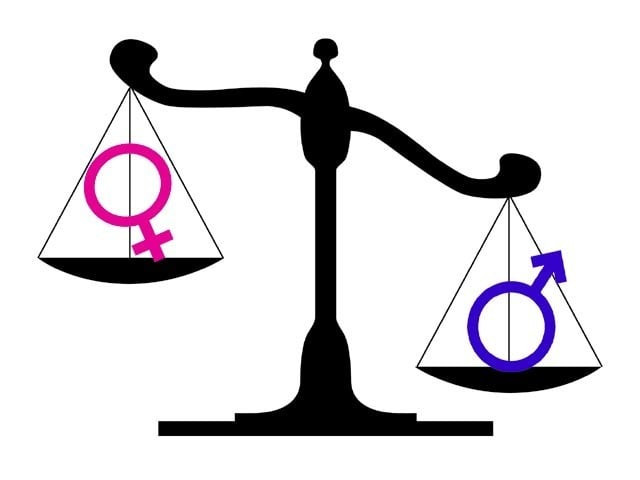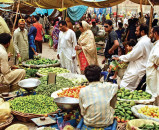Gender justice: 659 potential forced marriages prevented
Violence against women is disrupting the social fabric.

'The Gender Justice Programme has prevented 659 potential forced marriages in the last three years.' PHOTO: FILE
“The Gender Justice Programme (GJP) has prevented 659 potential forced marriages in the last three years…it also helped 558 women obtain their inheritance shares,” Norwegian Church Aid (NCA) Senior Programme Officer Rabia Waqar said on Thursday.
She was speaking at a consultation organised to discuss the gender justice issues and innovative strategies that need to be adopted to address them.
Waqar said the NCA had worked with Muslim, Hindu and Christian religious leaders who had delivered “over 8,000 sermons denouncing gender based violence.”
She said the programme adopted a rights based approach to counter gender based violence instead of “a charity approach focusing only on service delivery.”

“We use religious arguments to support women’s rights…the programme reached 1.3 million individuals (from 2010-2013) with an objective to reduce deprivation of women’s rights.”
She said many feminist organisations in Pakistan were reluctant to work with religious leaders. “We must encourage our partners to work with them to change public opinion.”
She said 680 civil organisations had been established in the last three years for preventing forced marriages, facilitating women to obtain their inheritance, and referring complaints to partner organisations.
“These civil organisations identify and take a stand to stop forced marriages… If the case is complicated it is referred to jirgas in Mansehra, musalihati anjumans in Haripur, district watch groups in south Punjab and Insaf Group committees in Gujrat,” she added.
Waqar said nearly 67 per cent (326 out of 484) cases related to jirgas and panchayats through civil organisations went in favour of women. “Free legal support was provided in 484 cases,”
She said forced marriages had been prevented as a result of religious leaders answering questions on the radio.
She said there was a dire need to develop synergies between women’s rights groups and faith actors developing principles for collaboration and best practices in the future.
“Violence against women is one of the greatest epidemics of our times and is disrupting the social fabric… The time to act is now, otherwise, it may be too late,” she said.
Sana Usman, the NCA consultant on gender based violence, said, “In order to address the issue of violence against women in Pakistan, our key priority should be to engage more with men and boys and taking them along as allies instead of opponents.”
She said more men needed to know that inflicting violence on women whether physical, sexual or psychological, was not a manly act.
Usman said the role of media was significant as it could “bring about behavioural change by promoting the message of tolerance rather than objectifying women.”
The group work session on strategising gender based violence prevention shed light on opportunities and challenges for women’s rights groups.
A number of civil society organisations engaged with the participatory process to assess the needs of the community through their experience with gender based violence.
The event concluded with a session titled Way Forward for Civil Society.
Amna Malik of the Arman Welfare Trust, stressed the need to engage the religious leaders and make them aware of Gender based violence.
She said a group must be formed including minorities and women religious leaders as well.
Durre Shawar of the All Pakistan Women’s Association said that a quarterly meeting of the stakeholders must be held regularly.
Published in The Express Tribune, December 6th, 2013.



















COMMENTS
Comments are moderated and generally will be posted if they are on-topic and not abusive.
For more information, please see our Comments FAQ